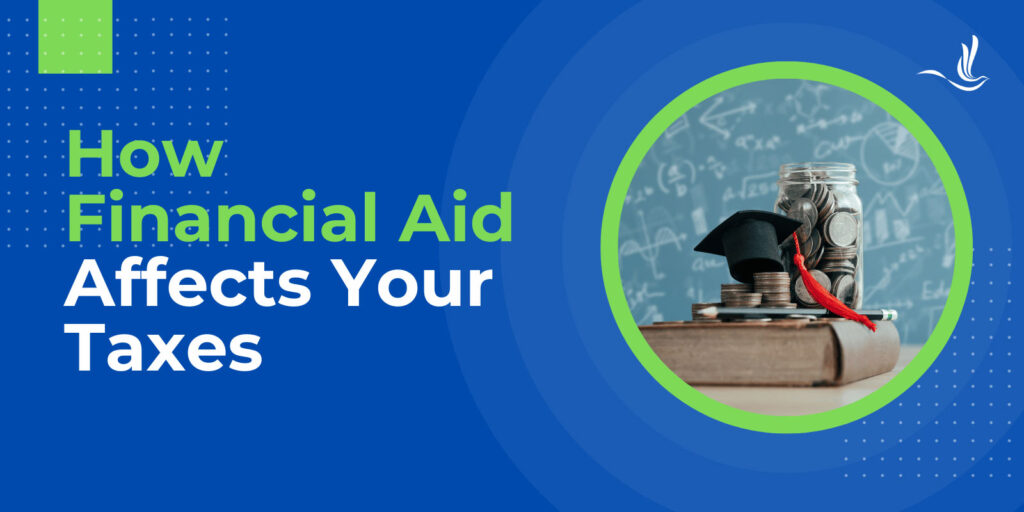
Receiving financial aid can be a crucial lifeline for students pursuing higher education. It helps alleviate the burden of tuition and related expenses. However, many recipients of financial aid may not realize that it can have significant implications for their tax returns. Understanding how financial aid affects your taxes is essential for staying compliant with the IRS and optimizing your financial situation. In this article, we’ll delve into the key aspects of how financial aid influences your tax obligations.
Types of Financial Aid That Affect Your Taxes
Financial aid comes in various forms, including scholarships, grants, work-study programs, and student loans. Each type of aid has a different impact on your taxes.
Scholarships and Grants
Scholarship and grant money used for qualified educational expenses is typically not considered taxable income. This means that if you use these funds to pay for things like tuition, fees, books, and other necessary educational expenses, you usually don’t have to report the scholarship or grant money as income on your federal tax return. However, there are exceptions. For example, if you use scholarship or grant money for non-qualified expenses, such as room and board, travel, or personal expenses, that portion of the aid may be considered taxable income. In this case, you would need to report it on your tax return.
Work-Study Income
Money earned through a federal or institutional work-study program is considered taxable income and should be reported on your tax return. When you receive work-study income, your employer will provide you with a Form W-2 at the end of the tax year. This form will detail your earnings. You’ll need to include this information when you file your tax return. The amount you earn through work-study will be subject to federal income tax. In some cases, you’ll owe state income tax as well.
Student Loans
Student loan money that you borrow is generally not considered taxable income. This is because you are required to repay the borrowed funds with interest. However, it’s essential to understand that while the loan principal is not taxable, the interest you pay on student loans may be tax-deductible. The IRS provides a Student Loan Interest Deduction, which allows eligible taxpayers to deduct up to $2,500 of the interest paid on qualified student loans. To qualify for this deduction, you typically need to meet certain income limits and other criteria. In 2023, your MAGI needs to be less than $90,000 if you are single to qualify. If you’re married, it needs to be less than $180,000 to claim at least some of this deduction.
Additionally, any forgiven or canceled student loan debt may be considered taxable income. For example, if you participate in a loan forgiveness program or have your loans discharged due to disability, the canceled debt may be treated as taxable income, and you may have to report it on your tax return.
Tax Credits for Education
To ease the financial burden of higher education, the IRS offers two tax credits to students and their families. These include:
- The American Opportunity Credit: This tax credit can provide up to $2,500 per student for the first four years of post-secondary education. It covers qualified tuition, fees, and course materials, and a portion of the credit is refundable.
- The Lifetime Learning Credit: This credit allows for a tax deduction of up to $2,000 for qualified education expenses, even for non-degree courses and for an unlimited number of years.
It’s essential to note that you may not claim both the American Opportunity Credit and the Lifetime Learning Credit in the same tax year for the same student. Instead, you must choose one. In addition, your eligibility for these credits are determined by your IRS Form 1098-T, Tuition Statement. Educational institutions use this form to report total amounts paid for qualified tuition and related expenses during the tax year. It also reports the total amount billed for those same expenses.
Reporting Financial Aid on Your Tax Return
It’s essential to accurately report any financial aid you receive on your tax return. Scholarships and grants used for non-qualified expenses, like room and board or meals, should be reported as taxable income. If you receive work-study income, make sure to report it, even if it doesn’t exceed the tax-filing threshold.
Keep Accurate Records
Maintaining detailed records of your financial aid and educational expenses is critical. This includes receipts, tuition statements, scholarship award letters, and any relevant documents. These records will be invaluable when you file your taxes and if you’re audited by the IRS.
Tax Help for Students
Receiving financial aid is a valuable resource for many students, but it’s important to be aware of its potential impact on your tax situation. By understanding the tax implications of scholarships, grants, work-study income, and student loans, you can make informed decisions and take advantage of available tax benefits. Remember to keep detailed records and consult with a tax professional if you’re unsure about how your financial aid affects your taxes. With proper planning and accurate reporting, you can navigate the complexities of educational finance while maximizing your financial well-being. Optima Tax Relief is the nation’s leading tax resolution firm with over a decade of experience helping taxpayers with tough tax situations.
If You Need Tax Help, Contact Us Today for a Free Consultation